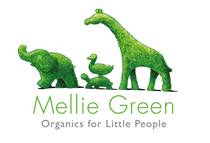Becoming a mother is a life changing experience, filled with joy, excitement and a fair share of challenges. While much attention is often given to the physical and emotional challenges during pregnancy, the postpartum period - often referred to as the fourth trimester - is equally important. This period, which typically spans the first six weeks to a few months after birth, can be a time of significant adjustment , both physically and emotionally.
Its essential for new mothers and their support systems to be aware of these symptoms to help ensure that you receive the care and support that you need during this transformative time.
- Fatigue and Sleep Disturbances: The demands of caring for a newborn coupled with the recovery can take its toll. Specialist organic tea's that are free from caffeine and safe whilst breastfeeding can be a great way of both staying hydrated and relaxing you so that you can fall asleep quickly when you have the chance to make the most of the precious time you have.
- Hair Loss: Many new mothers experience hair loss as a result of the rapid decrease in hormones in their body. It is generally temporary but their are products on the market that help to stimulate hair regrowth and its best to start early rather than wait for the full effects before treating it.
- Dry lips and skin: As the hormones drop and your body fights to repair from child birth your lips and skin can become dry or cracked and chapped. Simply ensuring you use natural organic moisturisers that are safe for baby can alleviate this. You will have a lot of skin to skin contact with your baby, so whatever you wear, they do too.
Emotional and psychological symptoms are also common:
Baby Blues: Around 70-80% experience the 'Baby Blues' as they are often called. Characterised by mood swings, anxiety, crying and not knowing why, irritability and anxiety.
- The most important thing to do is to acknowledge your feelings
- Rest and take care of yourself even if it means letting some other tasks go
- Learn to say 'No' - do not be afraid to tell people what you need. They're often well intentioned but if you need to sleep when the baby does, consider adding a note to your front door asking people not to knock because you and baby are sleeping
- Eat nutritiously to maintain your energy levels
- Stay hydrated - especially important if you are breastfeeding to replenish the fluid you are using to produce breast milk
- Ask for help and talk to someone. Joining a local baby group either physically or virtually is often helpful.
- Take time for yourself - short breaks if possible to walk, read or engage in a hobby even for a short amount of time can make you feel like yourself again. Do not underestimate the importance of fresh air and daylight
- Consult your healthcare provider if you're concerned and your symptoms don't improve
We found it super useful to have a baby changing essentials basket/ box on every floor or dotted around the house so that you don't spend all of your time running up and down the stairs. Newborns need to be changed often. We recommend spare vests, a new outfit/ baby grow, nappy ointment, nappies, wipes and hand sanitiser (don't be afraid to ask guests to use before cuddling baby)
In summary, the best course of action is to focus on self-care, seek support and be patient with yourself as you adjust to this new phase of life.

